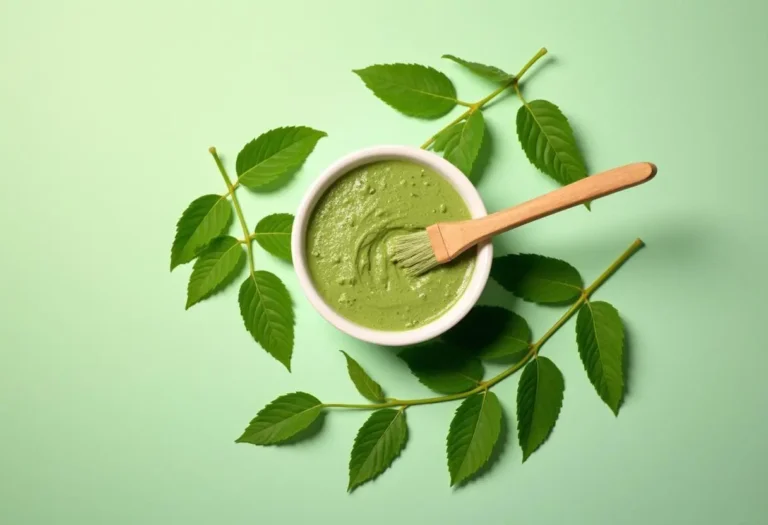It’s the middle of the night here in Pune. The world outside is quiet, but for you, there is no peace. There are few things more miserable than a throbbing, relentless toothache that seems to amplify in the silence of the night. The pain is sharp, it’s all-consuming, and the thought of waiting until morning to see a dentist feels impossible.
In these moments of desperation, our first instinct might be to panic. But I invite you to take a deep breath and walk to your kitchen spice cabinet. For generations, in households all across India, there has been a trusted, first-line-of-defense for this exact situation: Clove, or as we know it, Laung.
The use of clove oil for toothaches is a time-honored remedy that can provide powerful, temporary relief. This is your emergency guide to using it safely and effectively to get you through the night.
An Important Note Before We Begin: Please remember, this is a temporary fix, not a cure. Clove oil can manage the pain, but it cannot fix the underlying problem like a cavity or an infection. Your first priority in the morning should be to schedule an appointment with your dentist.
The Ancient Spice Cabinet Remedy: Why Does Clove Oil Work for Toothaches?
The reason your grandmother reached for a clove (laung) the moment you complained of a toothache is rooted in powerful science. Clove contains a natural compound called Eugenol, which is a true powerhouse.
- Natural Anesthetic: Eugenol has potent pain-numbing properties. When applied correctly, it can temporarily block the nerve signals from the sore tooth, providing significant relief from the throbbing pain.
- Antiseptic and Antibacterial: Eugenol also has impressive antiseptic qualities, which can help to clean the affected area and keep bacteria at bay, reducing the risk of further infection while you wait for professional care.
The effectiveness of this natural remedy for toothache is so well-documented that eugenol is still used in some modern dental materials today.
How to Use Clove Oil for Toothaches: A Step-by-Step Guide for Safe Relief
Using clove oil for toothaches is simple, but it’s crucial to do it correctly. Pure clove oil is very potent and can cause irritation or burns to your sensitive gums and tongue if not used properly.
What You Will Need:
- High-quality clove oil (laung ka tel)
- A carrier oil (like coconut, olive, or sesame oil)
- A small piece of a cotton ball or a cotton swab (Q-tip)
- A small, clean dish
The Dilution Step (Do NOT Skip This!)
This is the most important step for the safe use of clove oil for tooth pain. Never apply undiluted clove oil directly to the affected area.
Instructions: In your small dish, mix 2-3 drops of clove oil with half a teaspoon of your chosen carrier oil. This will dilute the clove oil to a safe concentration without reducing its effectiveness.
The Application Method
- Wash Your Hands: Start by thoroughly washing your hands with soap and water.
- Soak the Applicator: Dip the small piece of cotton or the tip of your cotton swab into the diluted clove oil mixture. You only need to saturate it, not have it dripping.
- Isolate the Tooth: Try to remove as much saliva from the painful tooth as you can with a clean tissue.
- Apply with Precision: Gently press the oil-soaked cotton or swab directly onto the part of the tooth that is hurting. The key is to target the tooth itself, especially if there is a cavity, and to avoid prolonged contact with your gums and tongue.
- Hold and Wait: Hold the cotton in place for a few minutes. You can gently bite down on it if the location of the pain allows. You should start to feel a warm, numbing sensation within a few minutes. This is the eugenol at work.
- Remove and Avoid Swallowing: After about 5-10 minutes, remove the cotton. Try to spit out any excess oil and avoid swallowing it. You can rinse your mouth gently with warm salt water.
This method is the most effective way to get emergency toothache relief when you can’t get to a dentist.
[Image showing the setup: a small bowl with diluted oil, a Q-tip, and the clove oil bottle.]
What If I Only Have Whole Cloves (Laung)?
It’s the middle of the night, and you might not have clove oil on hand. Don’t worry. You can still get relief using whole cloves, a staple in every Indian kitchen.
- Method 1: The Whole Clove Method: Take one or two whole cloves and place them in your mouth near the painful tooth. Allow your saliva to soften them. Once softened, gently chew or press them between your non-painful teeth to release their oil. Then, hold the softened clove mash against the painful tooth for several minutes.
- Method 2: The Clove Powder Poultice: If you have ground clove powder, take a small pinch and mix it with a drop or two of olive or coconut oil to create a thick paste. Apply this paste directly onto the tooth using a cotton swab.
Safety First: Important Precautions When Using Clove Oil
While clove for toothache is a fantastic natural remedy, it’s essential to be cautious.
- Always Dilute: As emphasized, never use undiluted clove oil.
- Do Not Swallow: Ingesting clove oil can cause adverse effects. Always spit out the excess.
- Use Sparingly: A little goes a long way. Do not over-apply.
- Children and Pregnancy: Do not use clove oil on children or if you are pregnant without first consulting a doctor.
- It’s a Temporary Fix: This cannot be stressed enough. This is a pain management tool, not a cure for the underlying dental problem.
When to See a Dentist Immediately
This home remedy is for simple toothaches. If your pain is accompanied by any of the following symptoms, it could be a sign of a serious infection that requires immediate medical attention:
- Fever
- Swelling in your face, jaw, or gums
- A foul taste or pus in your mouth
- Difficulty breathing or swallowing
- Pain that is severe and unrelenting
Conclusion: A Bridge to Professional Care
A toothache in the dead of night can make you feel helpless. But with a little bit of ancient wisdom from your spice cabinet, you can find a safe and effective bridge of relief. The proper use of clove oil for toothaches can calm the throbbing pain and grant you the peace you need to rest until you can get the professional care your tooth deserves.
As soon as the sun rises, make that call to your dentist. For now, we hope this trusted remedy brings you some much-needed comfort and allows you to get a bit of sleep.
Have you ever relied on this traditional remedy to get through a tough night? Share your experience with our Well Being Zen community in the comments below.




